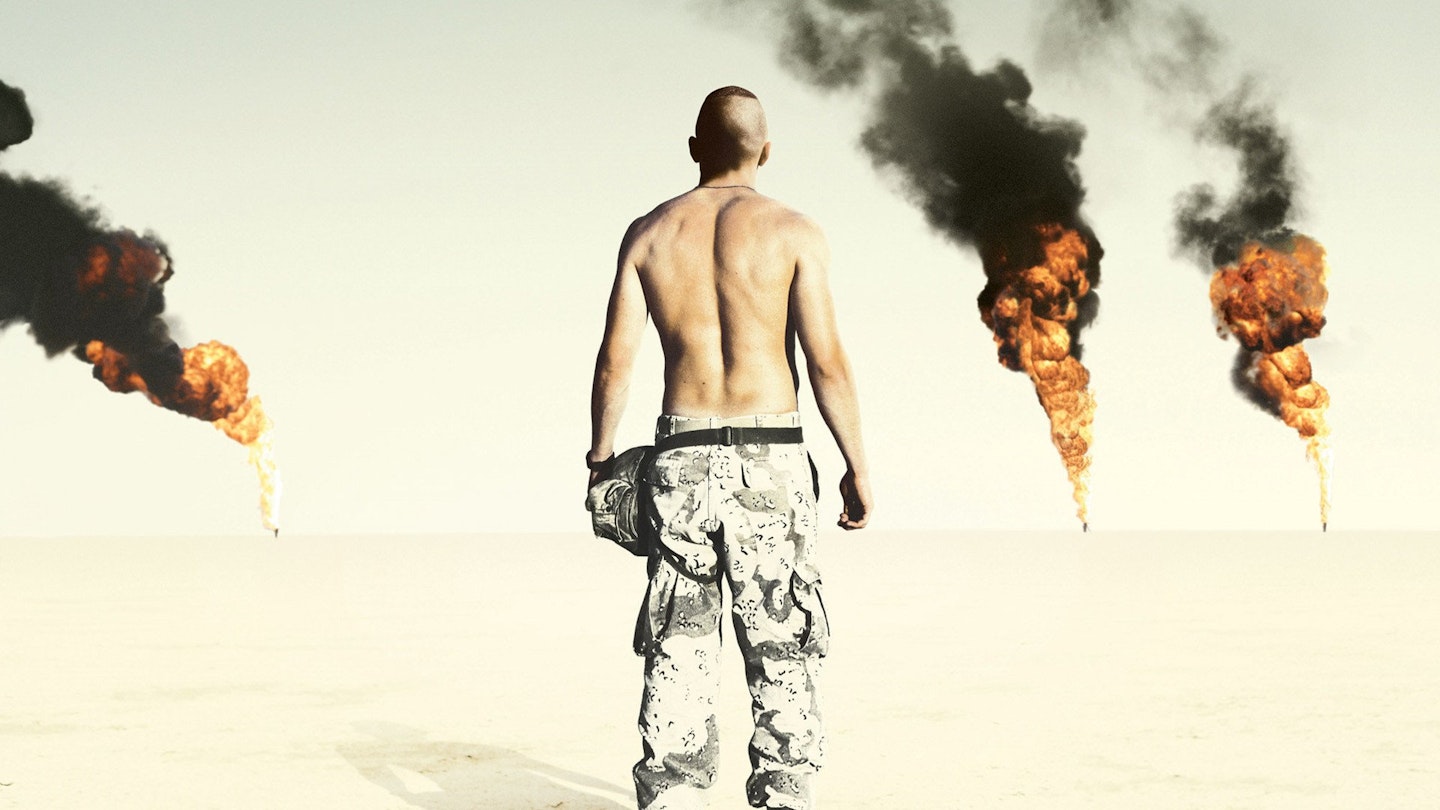War movies? What are they good for? Absolutely nothing, argues Anthony Swofford in the autobiographical Jarhead, his “Marine’s Chronicle Of The Gulf War And Other Battles”. More accurately, Swofford has bad news for any filmmakers green enough to believe they are ever selling an anti-war message. As far as a Marine, a true ‘jarhead’, is concerned, it’s all ‘war porn’, designed to get the trigger-finger twitching and the dick hard.
Swofford’s disturbing recollection of his Vietnam video nights is the basis for one of the most effective scenes in Sam Mendes’ movie version. With orders shipping them out to the Gulf expected any minute, gung-ho Marines (including the excellent Jake Gyllenhaal as Swofford) pass the time with a rowdy screening of Apocalypse Now, humming along to Wagner and hollering, “Get some!” as the Hueys hunt down Charlie. The message here is clear — any previous message was lost on these boys long ago.
By rights, then, Jarhead the movie can expect record-breaking bookings at army bases worldwide. It’s a technical marvel; Mendes, working with new cinematographer and regular Coen brothers’ collaborator Roger Deakins, peppers the screen with visuals to stir the loins of any red-blooded male. War has rarely looked so real, or so ravishing. Meanwhile the screenplay, written by Vietnam veteran William Broyles Jr., takes as its sole subject the soldier — and it is a soldier most modern Marines would recognise. The members of Swoff’s platoon are not glorified, nor are they ridiculed. Jarhead simply illustrates how modern warfare, in all its hi-tech, remote-kill cruelty, has made the skilled soldier mostly redundant. As an exercise in delivering the sense of what it was like to be a Marine, all dressed up and nobody to kill, in the Arabian Desert in 1990-’91, it cannot be faulted.
And yet, is that enough? Let’s say it again: war movies — what are they good for? A platoon of raw recruits might be expected to bark one answer; an Oscar-winning director, however, should surely believe in the power of his chosen medium. If Mendes does believe that war movies can serve a purpose, his own timely addition to the genre does not demonstrate the necessary ambition. Jarhead clocks in at two hours — can you imagine Oliver Stone making a war movie one third shorter than Peter Jackson’s King Kong? Then again, can you envisage Oliver Stone wanting to make a movie about the first Gulf War and resist attempts to read it as an indictment on our current misadventure?
The running time does leave an awful lot of good source material on the table and fans of Swofford’s memoir will bemoan many of the cuts. However, extra ammunition would be of little use unless Mendes was ultimately willing to fix upon a target. As memoirist, Swofford is under no obligation to draw his fractured narrative together, but a movie adaptation cannot live on entertaining sequences alone. Us civilians endure the Half Metal Jacket training and all that heel-kicking in the desert in the expectation that it will lead to something; that the epiphanies, violent or otherwise, will follow. They do not.
In his book, Swofford makes it clear that he lusted for action since youth. In the movie he comes across as an enigmatic voyeur whose motivations are rarely made clear, a curious alteration that robs us of any sense of growing disillusionment. Like its hero, Mendes’ film remains frustratingly distant, its characters unfocused, its purpose unclear, so that even as the indelible images sear onto your eyeballs and the emotional jabs knock you sideways, the mind is rarely completely engaged. In the end, Jarhead is less than the sum of its parts because of its admirable refusal to pick sides.

